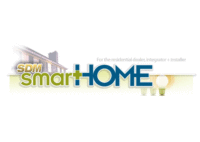As a manufacturer headquartered in an island nation, Panasonic is keenly aware of the burden that is placed on the environment and the responsibility that every individual and corporation must assume in stewarding its health and preservation. In fact, the Japanese word mottainai has come to globally represent the 3 Rs of green environmental practices – reduce, reuse, recycle – and we believe in the importance of implementing mottainai for a more sustainable society.
One way to help achieve this is to recycle end-of-life appliances and electronics. This is mandated by law in Japan, so that everyone shares in the responsibility of recycling – consumers, retailers and manufacturers. The law requires manufacturers to collect and recycle their own appliances, with consumers delivering the end-of-life products to retailers or manufacturers at designated collection points. Consumers pay a recycling fee when they drop off a product and must also purchase a recycling ticket that proves to a collector that any recycling fees have been paid. The fee is transferred to the manufacturer to help offset the cost of transportation to their recycling facilities.
It’s been effective, too - 55 percent of television monitors, 50 percent of refrigerators and 60 percent of household air conditioners are now recycled. The success of the Home Appliance Recycling Law has been achieved, in part, because of creative innovation on the part of the manufacturers at their recycling facilities, and none of these facilities is more advanced than Panasonic’s unique Eco Technology Center (PETEC).
Statistically, PETEC has processed more than eight million units since it began operations in April, 2001 and consistently exceeds the requirements of the Home Appliance Recycling Law for the amount of material recovered and reused from the hardware it processes. Approximately 4,000 televisions are processed every day and one million appliances are recycled per year at PETEC. This translates to 113 tons of iron (equivalent to 138,000 cars), 17,251 tons of copper (equivalent to 69 statues of the Great Buddha of Nara) and 9,804 tons of aluminum (equivalent to 85 jumbo jets). PETEC accepts refrigerators, air conditioners, washing machines and televisions (both CRT and LCD) from 23 manufacturers and recycles, on average, 85 percent of the material.
To achieve such high numbers, PETEC has devised advanced recycling technology including a high-precision resin selection system and an organic decomposition system, which are used in combination with manual dismantling of appliances. Decomposition uses titanium oxide, which decomposes one part and allows for the recovery of the remaining materials. The facility also uses magnetism to separate iron and uses gravity and vibration to recover copper and aluminum. Plastics are sorted in a high precision air system where infrared light can pick out a single resin.
Of the 49 recycling facilities in Japan, PETEC is the sole facility to include a research and development division for the advancement of recycling technologies. Product managers and engineers who design the appliances spend time at the facility where they can learn the value of recovered resources. The hands-on experience in dismantling a product helps to develop an understanding that can be applied when designing products. PETEC uses a dust collecting system that results in minimal debris and particles in the air, and is designed with 250 solar panels that produce 50 kilowatts of electricity to power all building lights; and noise and vibration proofing to help ensure minimal impact on employees and the local environment.
Panasonic’s eco initiatives are global in scope with a goal of becoming the number one green innovation company in the electronics industry by its 100thanniversary in 2018. Most recently the company announced the establishment of Panasonic Eco Solutions North America (PESNA) to provide comprehensive renewable energy and energy efficiency solutions to corporate and public sector organizations from the planning stages through implementation, construction and permanent financing as well as ongoing system maintenance. And through its Kids School Eco Learning Program, Panasonic is offering opportunities for environmental education to children around the world to help nurture tomorrow’s global sustainable leaders.
In North America, Panasonic is a founding member of the Electronic Manufacturers Recycling Management Company (MRM), along with Sharp and Toshiba. Its mission is to bring manufacturers together into long-term relationships that help provide convenient, environmentally responsible recycling opportunities to consumers nationwide. MRM is committed to building sustainable electronics recycling programs across the country.
It’s important for all manufacturers to join actively in the effort to sustain a greener earth. It’s a mission that can make us all feel better about the footprints we create on the planet.
_feature.jpg?1335189188)





_feature.jpg?height=200&t=1335189187&width=200)